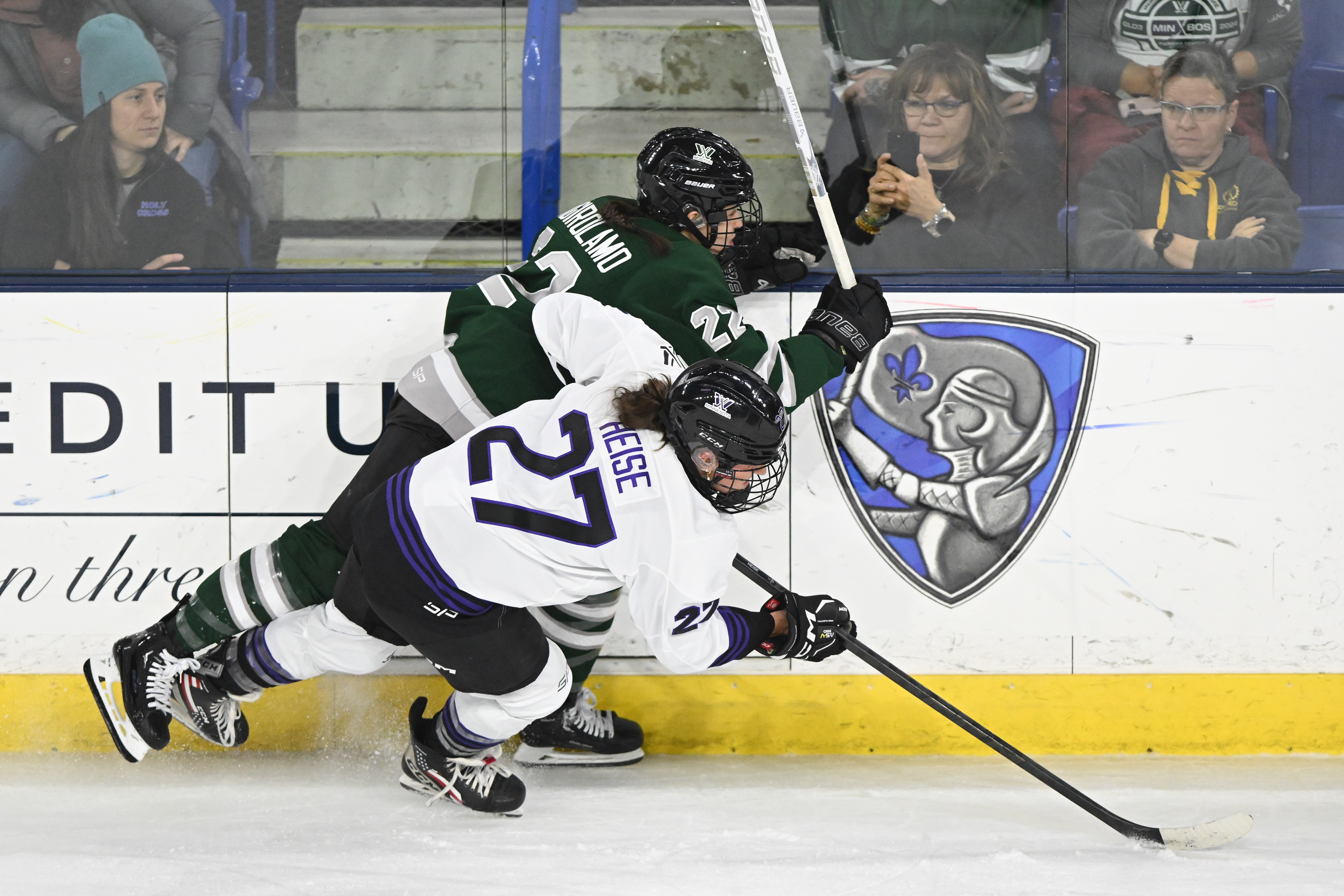ELMONT, NY – Madison Packer is no stranger to gritty play in hockey. It’s been one of the keys to her success in nine seasons as a professional player.
But that didn’t stop the PWHL New York forward from issuing a warning recently about the increased physical play in the new Professional Women’s Hockey League that debuted Jan. 1.
“The rulebook clearly states you can make body contact when you make a play on the puck along the wall,” Packer explained to Sportsnaut. “That’s way different from what we’re seeing. If you’re going to allow full-body contact then we have to dial it back before we dial it forward.”
According to Packer, there are several issues at play.
Those would be open-ice hits, how referees are enforcing the rulebook and plain old dirty hits that should be illegal no matter the women’s game or in men’s professional leagues.
“This is not me taking a shot at the officials. This is me acknowledging that the officials need to understand there’s a red line, there’s a black line and there’s a grey area. And they don’t know where any of those areas or lines are,” Packer offered.
“Some of what we are seeing should not be a part of the game, like sticking your knee out to deliver a hip check. That’s where it’s tough if you don’t enforce the line and then you allow some of those plays to go. There’s a difference between body contact and a cheap play. I think that needs to be called out and fixed quickly or else the rate of injury will skyrocket. We’re already seeing it.”
Related: PWHL international players among pioneers in new women’s league
PWHL players, officials still adjusting to liberated checking rules
Several coaches around the league have expressed similar concerns about the consistency of penalty calls when it comes to physical play.
“Yeah, it’s really physical, a new brand of hockey we have not seen before with the amount of body contact, body checking that’s being allowed,” Montreal coach Kori Cheverie said. “It’s in a good place but it’s also toeing the line right now of what is allowed and what isn’t.”
New York coach Howie Draper said there’s still an adjustment period taking place for the players, coaches and on-ice officials, even though the season is nearly halfway over.
Part of the issue with loosening the rules regarding checking is that most girls and women players do not grow up playing with much contact. So, at the professional level, with some much bigger players, the possibility of injury increases because most players are not used to protecting themselves properly.
“There are big players throwing their bodies around against players that are much smaller,” Packer said. “That happens on the men’s side, as well, but they’ve been checking their whole life. The last time we hit was pee-wee and some girls never have.”
Packer’s point is valid. Even in the most intense women’s international games played between the United States and Canada, the checking is limited.
“Probably the biggest change (in the PWHL) is the body checking, body contact. It’s certainly a step up from anything any of us have experienced, coaches and players alike,” Draper stated. “It’s going to take an adjustment on the ice, players have to be prepared for it and sometimes when you haven’t played a more physical game and the envelope is being pushed a little more that way, you don’t protect yourself.”
Related: Stan Kasten says early PWHL success ‘way beyond our expectations’
Several PWHL stars believe increased physical play has been ‘great’
That doesn’t mean the players are unhappy with the looser rules in the PWHL. In fact, quite the opposite is true.
Some of the top stars in the league, ones decorated with Olympic medals like Montreal forward Marie-Philip Poulin and New York’s Alex Carpenter, fully endorse the more physical game.
“It’s quite physical. I think that’s what we’ve wanted to do,” Poulin said. “The pace is fast, it’s physical, it’s been great.”
Added Carpenter, “I think all of us love that. We kind of grew up playing with boys, so we grew up with some physical play. It’s so good for the sport. It’s entertaining and kind of lets us be a little more free on the ice.”
Packer doesn’t disagree. But that doesn’t lessen her concerns, either.
“I think it’s good. I’m not suggesting we take it out of the game,” Packer explained. “But just because you can play physical doesn’t mean that all of the physicality gets let go. And the open ice hits? There’s no place for that in our game. I think we have to dial that back or else there will be too many injuries. There’s no reason to play that way.”

